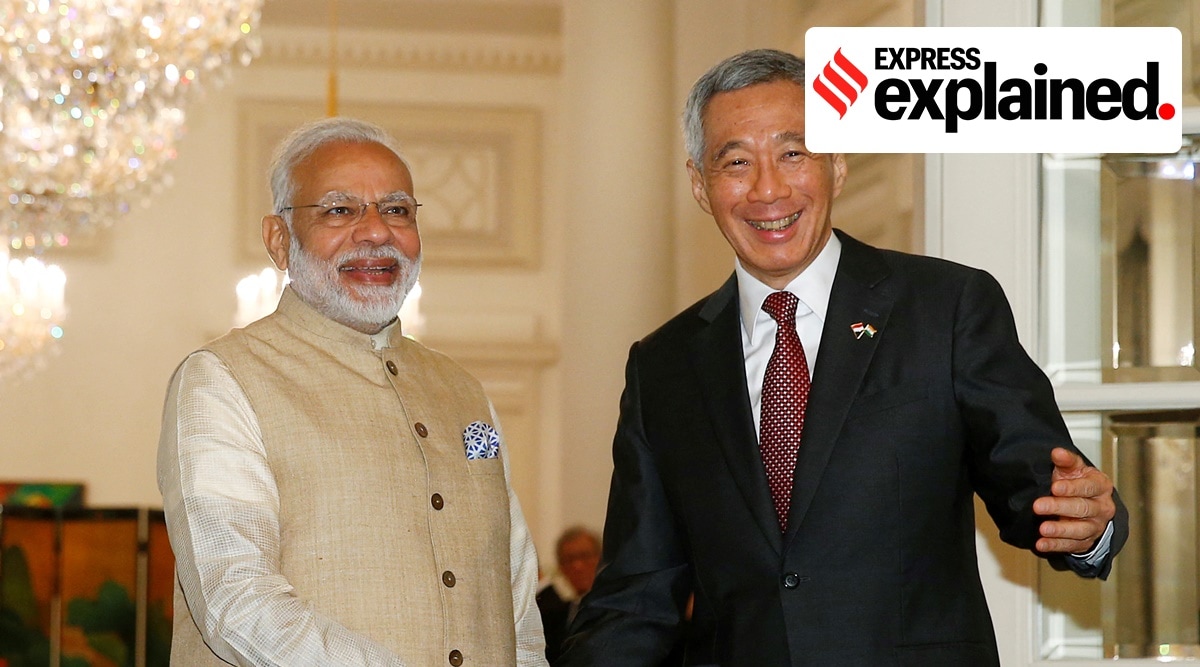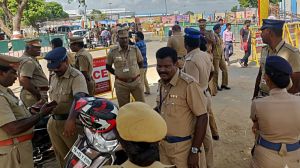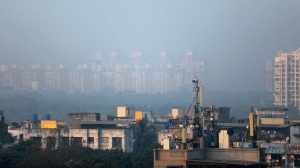Singapore is a key strategic partner, and Prime Minister Narendra Modi has visited the country at least five times in his seven years in power, signalling close strategic ties at the highest level. The unusual step of summoning the envoy of such a close partner country is being seen as part of a pattern of sensitivity to external criticism that India has demonstrated in recent years.

This touchiness is, of course, different from India’s traditionally strong protests against statements concerning the territorial integrity of the nation. Thus, it has over the last seven decades, always rebutted forcefully statements made on Jammu and Kashmir or Arunachal Pradesh by countries such as Pakistan or China. Recently, India has issued strongly-worded rebuttals to statements by Nepal on the issue of Kalapani.
India has also routinely rejected allegations or commentary from Pakistan and the Organisation for Islamic Cooperation (OIC) on the situation of minorities, asking them to stay away from India’s internal affairs. When Turkey and Iran have occasionally made similar comments, New Delhi has pushed back strongly.
But of late, the government has reacted — often with seemingly disproportionate intensity — to statements made by leaders of partner countries with whom India speaks of “shared values”. It has also chosen to respond to statements by lawmakers from these countries — made in their parliaments or outside — and to comments posted by private individuals on social media.
Many diplomats, however, feel that India’s reactions represent muscle-flexing that is essential to projecting power at the international stage — an assertion of identity, and a signal that no criticism would be taken lying down.
TRUDEAU, DEC 2020: After Canada’s Prime Minister Justin Trudeau spoke in support of farmers protesting the three farm laws, India criticised his “ill-informed comments” on the “internal affairs of a democratic country”.
Story continues below this ad
 Speaking on Gurpurab, Trudeau had said to Canadian-Sikh leaders: “I would be remiss if I didn’t start by recognising the news coming from India about the protest by farmers. The situation is concerning. We are all very worried about family and friends… Let me remind you, Canada will always be there to defend the rights of peaceful protesters. We believe in the process of dialogue. We’ve reached out through multiple means to the Indian authorities to highlight our concerns. This is a moment for all of us to pull together.”
Speaking on Gurpurab, Trudeau had said to Canadian-Sikh leaders: “I would be remiss if I didn’t start by recognising the news coming from India about the protest by farmers. The situation is concerning. We are all very worried about family and friends… Let me remind you, Canada will always be there to defend the rights of peaceful protesters. We believe in the process of dialogue. We’ve reached out through multiple means to the Indian authorities to highlight our concerns. This is a moment for all of us to pull together.”
In response, the then MEA official spokesperson Anurag Srivastava said without naming Trudeau: “We have seen some ill-informed comments by Canadian leaders relating to farmers in India. Such comments are unwarranted, especially when pertaining to the internal affairs of a democratic country. It is also best that diplomatic conversations are not misrepresented for political purposes.”
India also summoned the Canadian High Commissioner and said that if such “unacceptable interference” in India’s internal affairs continued, it would have a “seriously damaging” impact on bilateral ties.
The India-Canada relationship has seen some hiccups as the Canadian political leadership has tried to woo the numerically and socially important Sikh diaspora. The government was frosty during Trudeau’s trip to India in February 2018, as Canada’s ruling party was seen as supporting some pro-Khalistan elements in that country.
Story continues below this ad
RIHANNA AND GRETA, FEB 2021: After pop star Rihanna and teenage environment activist Greta Thunberg spoke on the farmer protests and the violence on January 26, the MEA issued a long statement, complete with hashtags “#IndiaAgainstPropaganda” and “#IndiaTogether”.
The MEA had said, “The temptation of sensationalist social media hashtags and comments, especially when resorted to by celebrities and others, is neither accurate nor responsible.” External Affairs Minister S Jaishankar had tweeted, “Motivated campaigns targeting India will never succeed. We have the self confidence today to hold our own. This India will push back,” using the #IndiaTogether and #IndiaAgainstPropaganda hashtags.
The Indian government ultimately withdrew the farm laws.
UK ENVOY, MAR 2021: Besides Trudeau, Rihanna, and Greta, at least a dozen MPs from the UK, Australia, and Canada, and a US Republican leader also voiced support for the farmers. There are sizable Sikh populations in Canada, the UK, and Australia, which have a strong influence on the political system at some places.
After the issue figured in Britain’s Parliament, India summoned British High Commissioner Alex Ellis to lodge a protest against what it said was an “unwarranted and tendentious” debate in the House. The debate, which was held in response to a public petition that garnered more than 115,000 signatures, saw lawmakers across parties criticising the Indian government’s handling of the farmers’ protest, accompanied by calls to UK Prime Minister Boris Johnson to raise their concerns with New Delhi. Most MPs acknowledged that the agriculture reforms were India’s domestic matter, but noted their constituents, who had strong links with India’s farm sector, were upset.
Story continues below this ad
Foreign Secretary Harsh Shringla served a demarche on Ellis saying the Parliament debate “represented a gross interference in the politics of another democratic country”, and advised that “British MPs should refrain from practising vote bank politics by misrepresenting events, especially in relation to another fellow democracy”.
The Indian mission in London had earlier complained that “rather than a balanced debate, false assertions – without substantiation or facts – were made” by the British MPs.
SOUTH KOREA ENVOY, FEB 2022: On February 7, India summoned the South Korean ambassador and conveyed its “strong displeasure” over an “unacceptable” social media post by Hyundai Pakistan supporting Pakistan’s Kashmir Solidarity Day. “It was highlighted that this matter concerned India’s territorial integrity on which there could be no compromise,” MEA spokesperson Arindam Bagchi said.
South Korea’s Foreign Minister Chung Eui-yong rang Jaishankar, and while they discussed several issues, Chung also conveyed that his country regretted the offence caused to the people and government of India.
Story continues below this ad
Similar tweets were posted by Pakistan affiliates of Kia motors, KFC, Suzuki, and other multinationals. It is not known whether India protested to some other countries as well.
UNDER EARLIER GOVTS: In December 2013, the government of Prime Minister Manmohan Singh had responded with considerable outrage to the treatment meted out to diplomat Devyani Khobragade by American law enforcement authorities. India summoned US diplomats and went after some diplomatic privileges, pulling bilateral diplomatic ties to a low.
Long before that, Indira Gandhi would routinely blame the “foreign hand” for India’s domestic challenges.
Newsletter | Click to get the day’s best explainers in your inbox









































